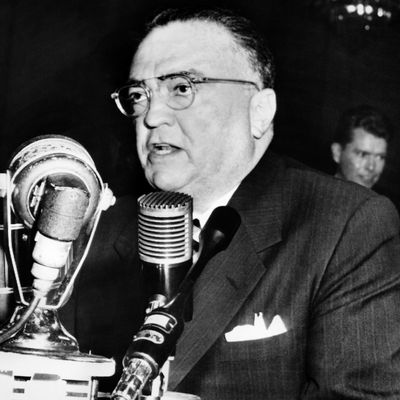
“Many civilian agencies of government have taken an entirely unrealistic view of the problem of sex perversion and have not taken adequate steps to get these people out of government,” announced a 1950 Senate report demanding a “crackdown” on gay lawmakers and civil servants. Soon after that, J. Edgar Hoover’s FBI created the Sex Deviate program, which collected information on suspected homosexuals, and President Eisenhower issued an executive order allowing investigations into the sex lives of federal employees in order to determine their “suitability” for their work. The New York Times’ Wednesday piece on Charles Francis, a gay-rights activist who has been collecting material from the American government’s years of explicitly anti-gay policies, cites a truly depressing document from that period.
In 1964, just months after President Johnson signed the Civil Rights Act, an administration official asked Civil Service Commission member John W. Steele whether a “rehabilitated” gay person might be able to keep their job after their past was discovered. Here are some of the lowlights of Steele’s response:
- Although there are some dissenting voices, our society generally regards homosexuality as a form of immoral conduct. Also, our social attitudes being what they are, a homosexual is extremely vulnerable to blackmail; exposure means public opprobrium and, in the case of a Government employee, the loss of his job.
- In evaluating cases of homosexuality, we automatically find the individual not suitable for Federal employment unless there is evidence of rehabilitation … There is room for considerable variation in the application of this policy, however, because nothing whatever has been issued to indicate what the term “evidence of rehabilitation” contemplates.
- Some feel that “once a homo, always a homo” and tend to find against anyone who has ever engaged in such activity … The rationale was something like this: homosexual conduct is evidence of some emotional imbalance and indicates instability or immaturity.
- In summary, it seems clear that this is an area in which there is little objectivity. Although it is commission policy to rule in favor of the individual if there is evidence of rehabilitation, in actual practice we rarely find evidence of rehabilitation.
- Our tendency is to “lean over backwards” to rule against homosexual activity is simply a manifestation of the revulsion which homosexuality inspires in the normal person. What is boils down to is that most men look upon homosexuality as something uniquely nasty, not just a form of immorality.
“These memorandums were not meant for the outside world to see,” said Francis, who added that the FBI burned 330,000 pages of documents related to the Sex Deviate program. “It’s a tide of human indignation.” And while we might live in a time when many people’s indignation is aimed at the enforcers of these policies, as opposed to those they were designed to persecute, it’s worth noting that the government only rescinded its anti-gay rules in 1977.





























